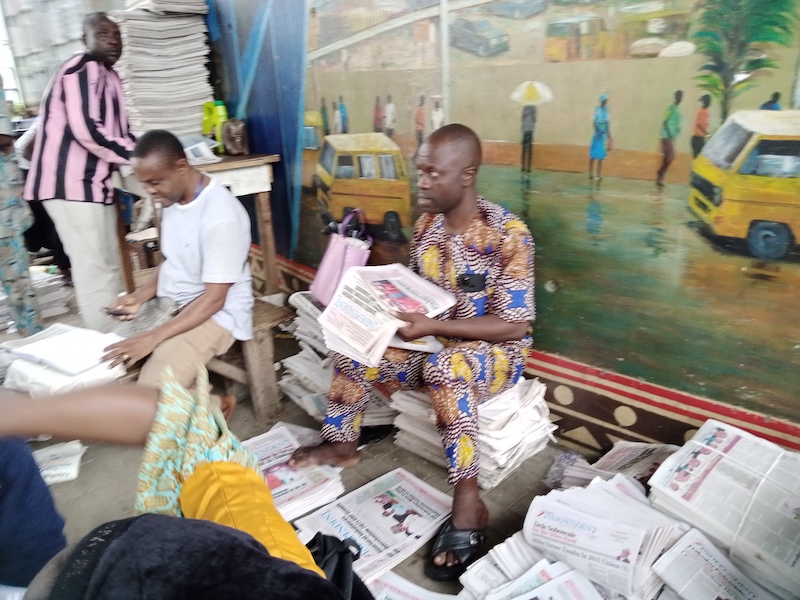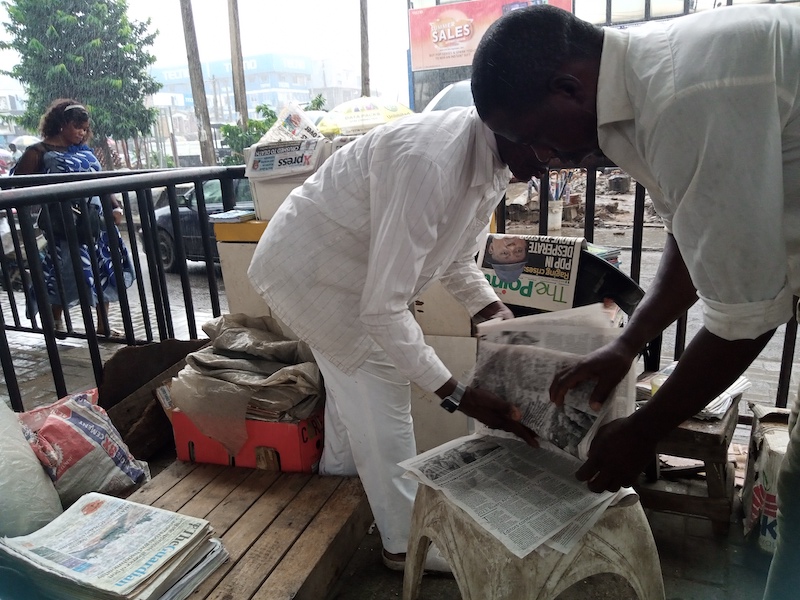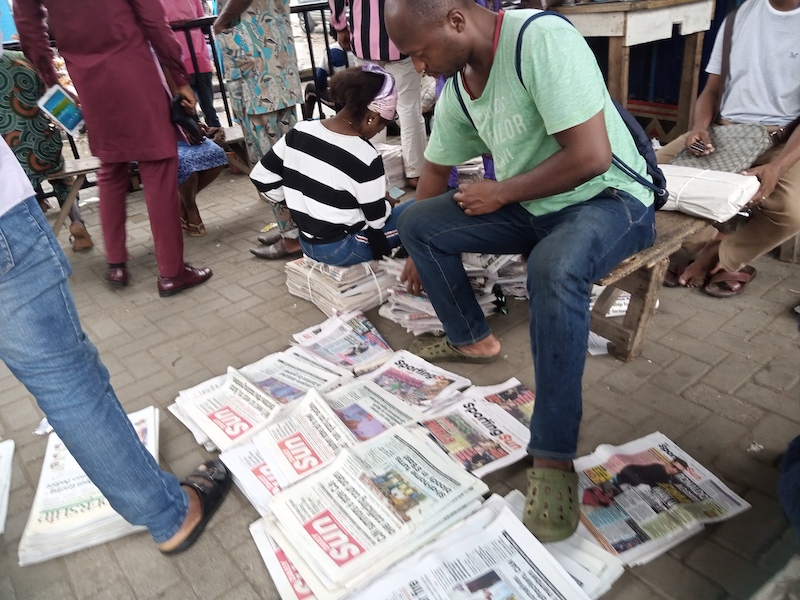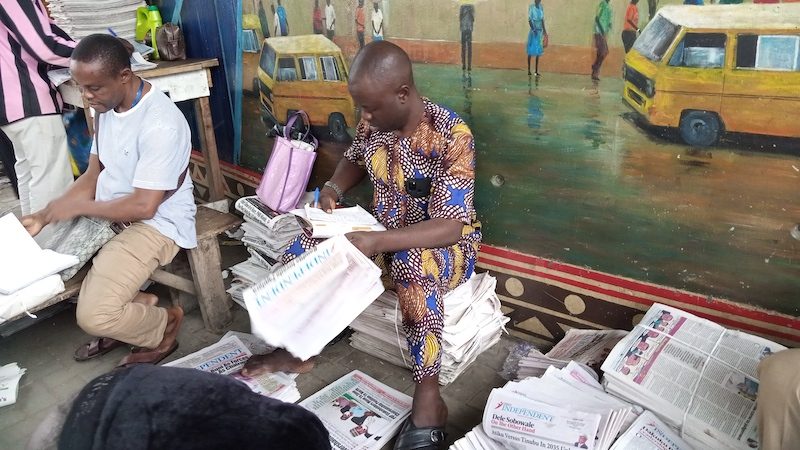By Linus Akomolafe and Fakomi Olajumoke
Under the scourging Lagos sun, he walks slowly towards the bridge with different newspaper dailies, seeking buyers, wearing the look of failed hours persuading passersby to make purchases.
This is the daily experience of newspaper vendor Tunde Babajide, within the last 5 years. Babajide explained to IkejaBird how he built his house in Ogun State in 1995 as a newspaper vendor but since 2015 he has struggled to make a living.
“I made up to N70, 000 per day back then from which I built my house and sent my children to school. When I get 200 copies of newspapers I sell everything and request for more but today we are begging people to buy the newspapers from us. I no longer have gains and I can’t leave the business. What will I do even if I leave?” Babajide queried.

With the advent of smartphones and new media, the print media across the world has been hit by a downward slope losing its readers to social media platforms where breaking stories and news contents are at the tip of their fingers.
Nigeria’s newspaper vendors still remain the worst hit as traditional media like Punch, Guardian, Vanguard newspapers have opted for online platforms, reducing print publication to about 45.5% which has affected numbers of copies and gains received from print media companies.
IkejaBird discovered, there are three tiers of distribution before the newspapers get to the public – the Sales Representative, Distributors /Agents and Vendors.

Femi Famusan, a Newspaper Sales Representative with Vanguard newspaper, who has worked for 12 years said his monthly gain dwindled to minimum wage within the last 7 years due to the advent of social media and he is afraid of the future, that the print industry may fold up in the next five years.
He explained that as a Sales Rep, Vanguard supplies him with copies based on bookings by agents. Then he works to get the money after sales from the agents and remit to the company.
“Newspaper business is down grading everyday and it is because of the Internet and social media. That is what’s affecting the newspaper business now. Before the hard copies are ready, people have read everything online. Those who patronize us are those who want to keep their hard copies which is why we are still in the business. I’m afraid for the future of newspapers within the next five years, I don’t know what can happen,” he said.
While explaining how newspapers are distributed to people and the gains involved, Omoyinka Badmus, a sales Rep with The Nation newspaper said, “We don’t deal with vendors, we deal with agents directly and our relationship is cordial. When I was working with Punch I was deployed to Cross River State and I spent over 9 years there distributing newspapers to Vendors and I covered the whole State. There is no local govt I don’t know in Cross Rivers State.”
Speaking on the current challenges bedeviling the industry, he said during the rainy season, this newspaper business experiences a 20 per cent decline, with vendors struggling to sell copies in the rain.
“Vendors get paid by media companies based on the copies they sell. It is very difficult for a vendor to sell 20 copies of newspapers these days. Give incentives like umbrellas, raincoats and rain boots to enable them to go around during the rainy season. They need to be motivated and that is the responsibility of the company.”

Shollyday, an agent with The Guardian said he started distributing newspapers in 1993 with juicy turnovers.
“As an agent I used to get 1,200 newspapers and I would sell them all. But today it’s either I get 15 copies or less. We are going through lots of financial problems now. What we’re selling is not what we feed on. But I’m grateful to God that I’m alive.”
Tunde Oladunbi lamented that social media caused the decline of sales and numbers of newspapers publications produced by media companies.
“What print is doing now is medicine after death. I had seen the news about Amosun’s visit to Tinubu in London, seen 12 am yesterday on social media. Meanwhile, newspapers just published it today. I have been doing this business for 20 years but I don’t want my children to do newspaper business. The newspaper industry is just using us,” he concluded.








